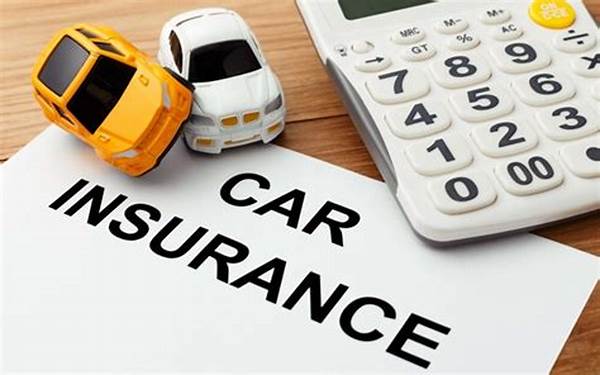When it comes to car insurance, one of the most common questions that vehicle owners ask is whether it’s necessary to purchase coverage for a low-value car. While it may seem unnecessary to pay for insurance on an older or inexpensive vehicle, understanding the benefits of coverage, the risks involved, and your personal circumstances can help you make a more informed decision. In this article, we will explore the factors you should consider when deciding whether to buy car insurance for a low-value vehicle and how to choose the right coverage that fits your budget and needs.
Understanding Car Insurance for Low-Value Vehicles
Car insurance is designed to protect drivers and their vehicles in the event of accidents, theft, or damage. For low-value vehicles, the decision to buy insurance becomes more complicated due to the lower market value of the car. However, insurance is not only about the cost of replacing a car. It also offers important financial protection in case of accidents that result in bodily injury or damage to other vehicles.
Low-value vehicles typically have lower resale value, which means that the cost of repairs or replacement may be close to or exceed the car’s value. In such cases, some drivers might feel that purchasing car insurance is unnecessary. However, there are a number of reasons why you might still want to consider getting coverage for your low-value vehicle.
1. Protection Against Liability Risks
Even if your car is not worth much, accidents can happen at any time. In most states, liability insurance is mandatory. This type of insurance covers the cost of damages or injuries you cause to others in the event of an accident. If you are at fault in an accident, the costs of medical bills and vehicle repairs for the other driver can be significant.

Without insurance, you could be forced to pay out-of-pocket for these expenses, which can be financially devastating. Liability coverage provides peace of mind and legal protection, making it a wise choice, even for low-value vehicles.
2. Collision Coverage to Protect Your Vehicle
Collision coverage pays for the repairs or replacement of your vehicle if it’s damaged in an accident, regardless of who is at fault. For low-value cars, collision coverage may not always be cost-effective, especially if your car’s value is very low.
However, if you rely on your vehicle for daily transportation or can’t afford to replace it out-of-pocket, collision coverage could still be beneficial. The decision depends on how much you can afford to pay for repairs and how likely you are to be in an accident. If your car is in a high-risk area or you’re a frequent driver, collision coverage might be worth considering.
3. Comprehensive Coverage for Non-Collision Events
Comprehensive insurance covers damage to your vehicle caused by events other than a collision, such as theft, vandalism, or weather-related damage. While you may feel that your low-value vehicle doesn’t warrant comprehensive coverage, consider the risks you face.
For example, if your car is stolen, without comprehensive coverage, you may be left without compensation for the loss. If your car is in an area where natural disasters or vandalism are common, comprehensive coverage could protect you from unexpected financial loss.
4. The Cost of Insurance vs. Car’s Value
One of the main reasons some drivers forgo car insurance for low-value vehicles is the cost. For older cars with low resale value, the price of comprehensive and collision coverage may exceed the value of the car itself. In this case, it may not make sense to invest in full coverage.
However, you can opt for minimum coverage, which is typically more affordable and still protects you from liability risks. You should weigh the potential cost of repairs or replacement against the cost of insurance premiums and your ability to pay for them.
5. Your Financial Situation
A critical factor in determining whether you should buy car insurance for a low-value vehicle is your personal financial situation. If your car is old and the cost of repairs is high compared to its market value, you may be better off paying for the minimum liability coverage and saving money on premiums.
However, if you can’t afford the potential out-of-pocket costs of repairs or if you rely heavily on your vehicle, opting for full coverage may be a safer choice. Understanding your financial capacity will help you decide if insurance is worth the expense.
6. Your Driving Habits and Risks
Another important factor to consider is your driving habits. If you drive frequently, commute long distances, or live in a high-risk area with a history of accidents, theft, or weather-related events, the likelihood of needing insurance increases. In this case, even for a low-value vehicle, having insurance provides a safety net that could save you from significant financial strain.
On the other hand, if you only use your car occasionally or live in a low-risk area, it may be reasonable to forgo comprehensive coverage. Weigh the risks involved and determine whether your driving habits justify the investment in insurance.
7. The Importance of Having Peace of Mind
Having car insurance, even for a low-value vehicle, provides peace of mind. Knowing that you are protected from the unexpected can ease anxiety and make driving less stressful. For some drivers, the reassurance that they won’t be financially devastated by an accident, theft, or natural disaster is worth the price of insurance premiums.
8. Alternatives to Full Coverage
If you decide that full coverage is not necessary for your low-value vehicle, there are other options to consider. Some insurers offer “bare-bones” policies that provide basic coverage at a lower cost. These policies typically include liability insurance and sometimes limited coverage for theft or damage.
Another option is to increase your deductible, which can reduce your premium costs. This means that if you need to make a claim, you will pay a higher amount out of pocket before the insurance kicks in. For low-value vehicles, this can be a cost-effective way to maintain some level of coverage.
9. Consider the Vehicle’s Safety Features

Many modern low-value cars come equipped with safety features such as airbags, anti-lock brakes, and advanced driver-assistance systems. These safety features can reduce the likelihood of accidents and injuries, which may lower your risk of needing expensive insurance claims. Some insurers may offer discounts for vehicles with advanced safety features, so it’s worth checking if your car qualifies for any savings.
10. The Impact of Insurance on Resale Value
Finally, consider how car insurance may impact the resale value of your vehicle. If you choose not to insure your low-value car and it gets damaged or totaled in an accident, it could significantly reduce its resale value. On the other hand, having insurance can help protect your car’s value by covering repairs or replacements, ensuring you don’t lose more money than necessary if you decide to sell the car later on.
Conclusion: Is Car Insurance Necessary for Low-Value Vehicles?
While purchasing car insurance for a low-value vehicle might seem like an unnecessary expense, there are valid reasons to consider coverage. Whether you need protection against liability, the peace of mind of full coverage, or just want to meet state requirements, insurance is an important aspect of responsible car ownership.
The decision to purchase insurance for a low-value vehicle depends on factors such as your driving habits, financial situation, and the risks involved. For some drivers, basic liability coverage may be sufficient, while others may prefer more comprehensive coverage to ensure they’re protected in case of an accident or other unexpected event.
Ultimately, choosing the right insurance for your low-value vehicle comes down to understanding your needs and balancing the costs with the level of protection you require. By taking these factors into account, you can make a well-informed decision and drive with confidence.
4o mini

Leave a Reply